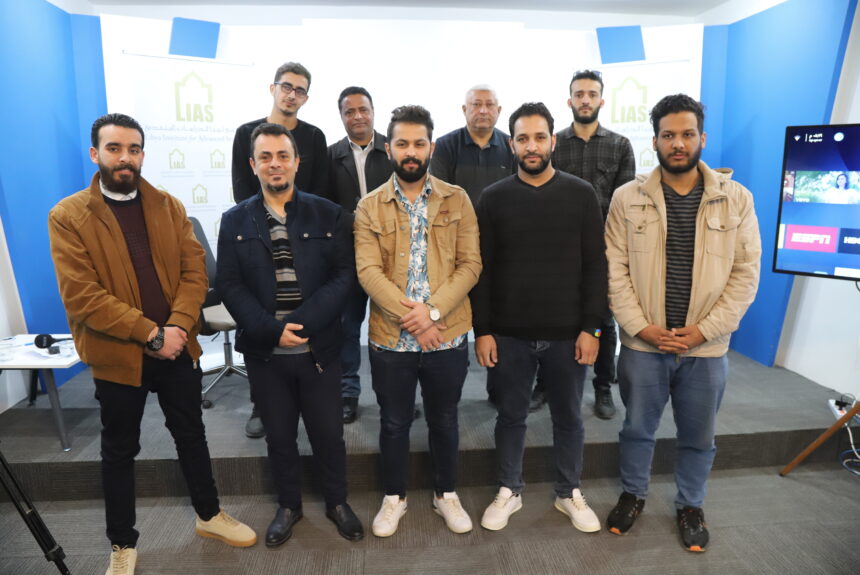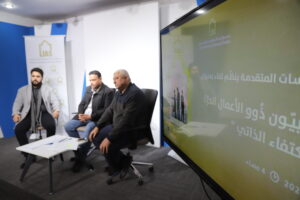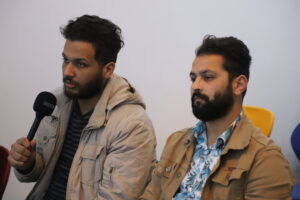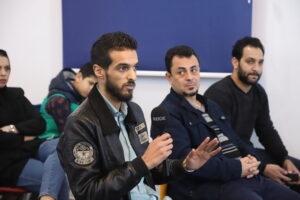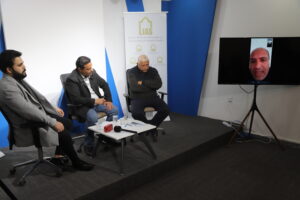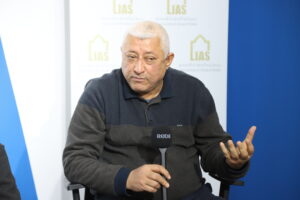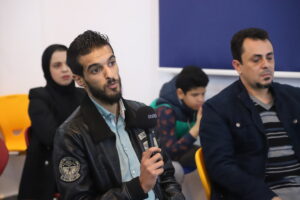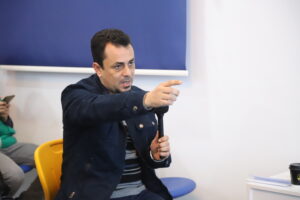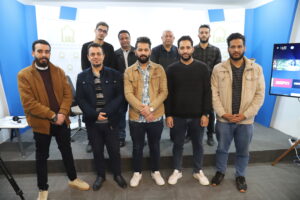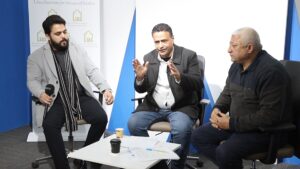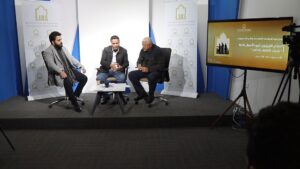Today, Saturday, February 12, the Libya Academy for Advanced Studies organized a session entitled: Libyan makers, “self-sufficient youth.”
The meeting was organized by Mr. Ahmed Al-Tabouni, a young man who practices several distinct trades, such as: plumbing and wall painting.
The session was moderated by Mr. Khaled Bouzakouk.
Hosting Mr. Youssef Al-Saiti, “a project owner,” and Mr. Nasser Al-Haddad, “writing a doctorate on small and medium enterprises,” with the participation of a group of young craftsmen to talk about their personal experiences and the difficulties they face.
Mr. Youssef Al-Saiti spoke about the problems and obstacles facing young Libyan manufacturers and craftsmen, the effects of the Corona pandemic, political division, lack of liquidity, lack of raw materials, and lack of training.
Professor Nasser Al-Haddad’s intervention was about small, medium and micro enterprises, their role in reducing unemployment, and the impact of this on the Libyan labor market, in a field study he conducted in the city of Benghazi, and the need for governments and municipalities to pay attention to these projects and support and develop them through the media and training, in order to achieve positive and distinguished results. .
Professor Mehdi Barbouch, Secretary General of the Tunisian University of Artisans and Small and Medium Enterprises, and its official spokesman, also participated, speaking about the experience of the Tunisian state in supporting artisans, professionals, and traditional industries, preserving them, developing them, documenting them, taking care of them, developing them, developing them, and establishing development and qualification centers. And local and international exhibitions, which led to the creation of different competencies in all professions, added ably to the local and international labor market, and pointed out the difficulties facing young people and craftsmen at the present time.
The floor was opened for discussion for the attendees, a group of young craftsmen, to talk about their personal experiences, the difficulties they face, and their suggestions for finding creative and distinctive solutions.
Mr. Malek Al-Tabuni, a craftsman in an aluminum workshop, spoke about his journey in learning this craft, the difficulties he faced, the successes he achieved, and some suggestions and advice for unemployed youth.
Mr. Suhaib Al-Obaidi, the owner of a cleaning and catering services company, also participated and spoke about his project, its stages, successes, and the difficulties it has gone through and is going through, with a set of important recommendations for young people seeking work.
Mr. Ahmed Al-Faytouri, an employee and perfume merchant, also participated, and he noted the importance of trade and its role in enriching the financial market, the current crises to which merchants are exposed, and their bad effects, and the bad effects caused by merchants of wars and crises who demanded quick profits, brokers of facilities and credits, and the absence of oversight and accountability.
The meeting concluded with the participation of Mr. Khaled Al-Saiti, a real estate marketer, who briefed the attendees on his profession, the challenges he faces, the experiences he obtained during his professional journey, and some important insights for all those wishing to create self-sufficient businesses, thereby achieving financial independence away from seeking state appointments and burdening them. Her ankles.


